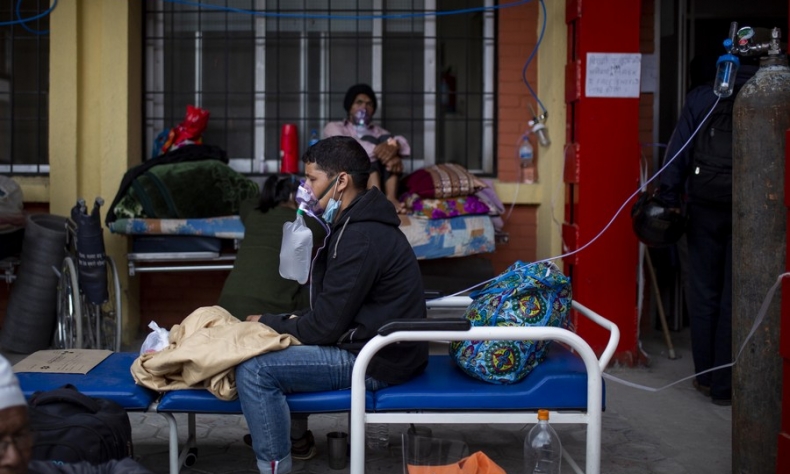China Promotes Anti-COVID Cooperation in South Asia

The COVID-19 pandemic has become a common enemy of humankind. The fight against it cannot be successful unless all countries and regions join hands by rising above their own interest. China’s initiative is important at this critical moment.
South Asian nations, with the largest number of poor people in the world, are now in the midst of the second wave of COVID-19 pandemic that is infecting and killing thousands of people on a daily basis.
Hospitals have been overwhelmed, with growing number of COVID-19 patients breathing their last amid a lack of oxygen, ventilators and hospital beds.
These nations have been forced to impose lockdowns and strict quarantine orders to prevent the resurgence of virus variants that have paralyzed their health systems. The worst-hit nations like Nepal and India have called for international support.
Against this backdrop, China has taken initiative under the broader framework of anti-COVID cooperation to combat the pandemic and attain post-COVID-19 economic recovery.
On April 27, Chinese Foreign Minister Wang Yi hosted a video conference on this subject with his counterparts from Nepal, Afghanistan, Bangladesh, Pakistan and Sri Lanka. It was part of a multilateral virtual dialogue China has been organizing since July 2020.
China’s commitment to promoting vaccine cooperation with five South Asian nations is a praiseworthy step towards eradicating the pandemic. It has rolled out its vaccines globally as part of its commitment to making them a public good.
The WHO recently added China’s Sinopharm vaccine into the COVAX program, which will ensure more people in many least developed and poor nations get access to a vaccine.
The virtual conference was also fruitful in terms of the commitment to establish multiple regional structures, including a China-South Asia emergency supplies reserve and a China-South Asia poverty reduction and development cooperation center, aiming to exchange experiences and good practices in poverty reduction with other countries.
Moreover, a China-South Asia forum on rural e-commerce poverty reduction cooperation is set to be held as a new platform for poverty reduction in the third quarter of this year. These mechanisms are expected to be inclusive, transparent, sustainable and demand-driven, and, in particular will extend a helping hand to India to control the raging virus.
These regional structures are vital in promoting collective action to contain a resurgent virus and repair a battered economy based on the principle of equity and justice. Fair distribution of vaccines will also diminish the trend of “vaccine nationalism” and ensure its access to poor and least developed countries.
The collaboration between South Asian countries is expected to gather steam with the help of the world’s second largest economy due to its necessary resources and management skills to develop and operate relative mechanisms.
Viruses know no border and nationalities. The COVID-19 pandemic has become a common enemy of humankind. The fight against it cannot be successful unless all countries and regions join hands by rising above their own interest. China’s initiative is important at this critical moment.
Ritu Raj Subedi is the Deputy Executive Editor of The Rising Nepal.
 Facebook
Facebook
 Twitter
Twitter
 Linkedin
Linkedin
 Google +
Google +










